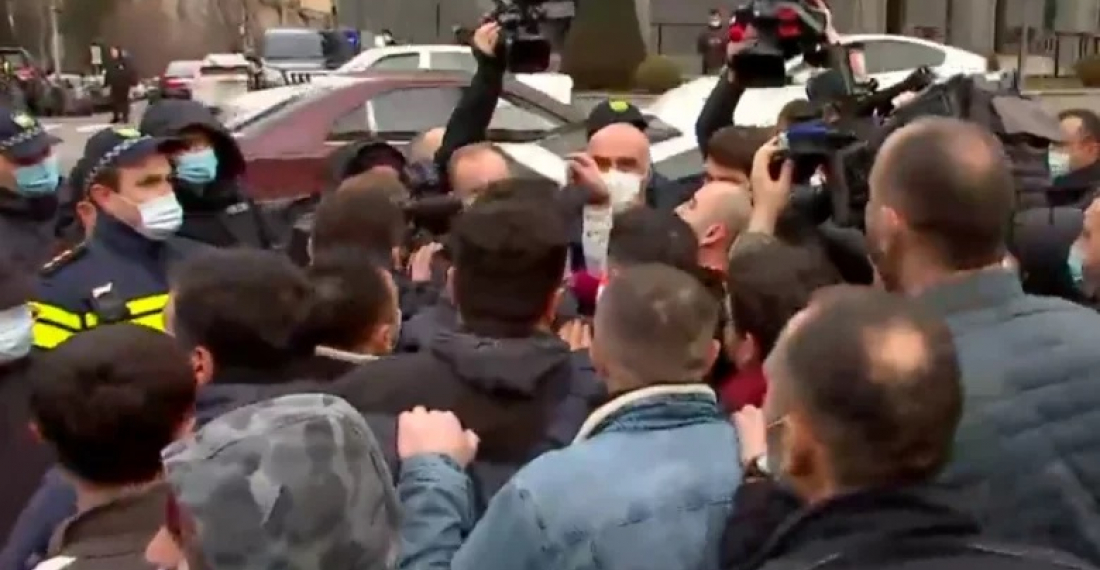Police clashed with protestors in Tbilisi as Georgia faces political turmoil following the resignation on Thursday (18 February) of prime minister Giorgi Gakharia.
The website civil.ge says police detained 20 pro-UNM activists after physical confrontation between law enforcement officers and activists over installing protest tents outside the Parliament building on Rustaveli Avenue, Tbilisi’s main thoroughfare.
The Georgian Interior Ministry confirmed to Civil.ge that the activists were detained under Article 173 of the Code of Administrative Offenses, involving disobedience of police orders. According to reports police seized a tent in the lead up to the skirmishes.
Gakharia resigned on February 18 over disagreement with the ruling Georgian Dream party on Melia’s detention.
The new prime minister will be Irakli Gharibashvili who has been nominated for the post by the ruling Georgian Dream party. He was defence minister in the outgoing government and served as prime minister before. He announced on Friday he will not reshuffle the government keeping all the ministers who served under Gaharia in place. However, first deputy prime minister and Minister of Regional Development and Infrastructure, Maia Tskitishvili has resigned, saying she wanted to spend more time with her family.







